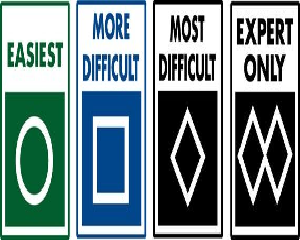CHANGE

CHANGE
Due to a high fever at age 2, Helen Keller became blind and deaf. At age 2, her world became dark, quiet, and undefined.
She could feel, smell, and move, but those senses had no relevance in context to anything. The outlook facing her was a great mind locked in a dark and quiet cell.
Can you imagine being placed in the cell with no way to communicate with the outside world. While other children were developing their communication and interrelation skills, Helen was lingering in darkness.
The period from 13 to 18 years of age, our emotional management is honed, the experiences learned earlier in life are structured into the neural architecture of the brain’s circuitry.
In Helen’s case, her emotional management had less to rely on, her undefined world blended into her emotional circuitry. She has a mind trapped in a cage, bounded by unfamiliarity and frustration that did not stop with her first learned word.
However, be the end of her life, she had changed dramatically. This all started when a 21-year old teacher, Anne Sullivan, started working with her.
When Sullivan met Helen, she was spoiled, an unruly terrorist of her household, no one knew how to handle her. Anne wrote to a friend, “Obedience is the gateway through which knowledge, yes, and love, too, enter the mind of a child.”
Change for Helen was understanding, relating her inside world to the outer world.
How do you view change in yourself?
Just like many of us, change comes with resistance. Helen Keller fought against Anne vehemently, until Anne associated cool water pumped from a well with the word “WATER” printed on her hand. This put a light of understanding “On” in Helen’s mind.
Resistance comes in many forms: externally and internally. In his book, “The War of Art,” Steven Pressfield digs into the many forms of resistance that plague artists. These same resistances apply to each of us. Many of them sound good, as an excuse for not doing something that is necessary for accomplishing a set goal. However, they are excuses.
We human beings are prone to follow the path of least resistance and that includes excuses. That is, to find the easiest means with the least amount of effort. Therefore, asking the question, “How do you view change?” is not a trivial matter.
Robert Frost’s poem, “The road not taken” ends with this verse:
“I shall be telling this with a sigh
Somewhere ages and ages hence:
Two roads diverged in the wood, and I,
I took the one less travelled by,
and that has made all the difference.”
In the end, looking back at every verse in our lives, only then will we see what the “difference” produced. The difference that has yielded the life we were seeking. The “Great,” “Better,” or “Best Life;” was accomplished though the words of Sullivan and Frost, “Obedience the necessity of not veering toward familiarity, the safe, the worn path, but to make the difficult journey of changing.
Jose Ortega y Gasset wrote: There are two distinct groups of man; “In distinguishing the excellent man from the common man by saying that the former is the one who makes great demands on himself, and the latter makes no demand on himself.”
Literature is saturated with countless examples of individual that placed great demands on themselves. Individuals that did not take the ease path, but reached for greatness, excellence, and most importantly, found fulfillment in those efforts.
If the adage, ”The only thing that is consistent is change.” Why do we not take heed and bravely face it?
“Living my best life.” Comes up as one of the highest searched phrases on Instagram.
It appears that the interest is there, the question of, “Will I do what is necessary?” appears to be the determinant.
Travelling the less worn path is difficult. The chances of you doing it alone is slim.
Change is inextricably tied to interdependence.
Helen without Anne Sullivan may have never attained the accomplishments she received: BA from Radcliff College, 12 books she wrote, she started the ACLU, travelling the world giving speeches through other voices…
Anne Sullivan was more than a teacher, their relationship lasted 49 years. Terminating only because of Anne’s demise.
Change cannot be created by looking into the mirror, others must be in the mix. Like Sullivan wrote to a friend, “Obedience – a necessary element mixed with love.”
Change is accelerated when on admits that they need others.
Attila Horvath, author
attilahorvath.net





